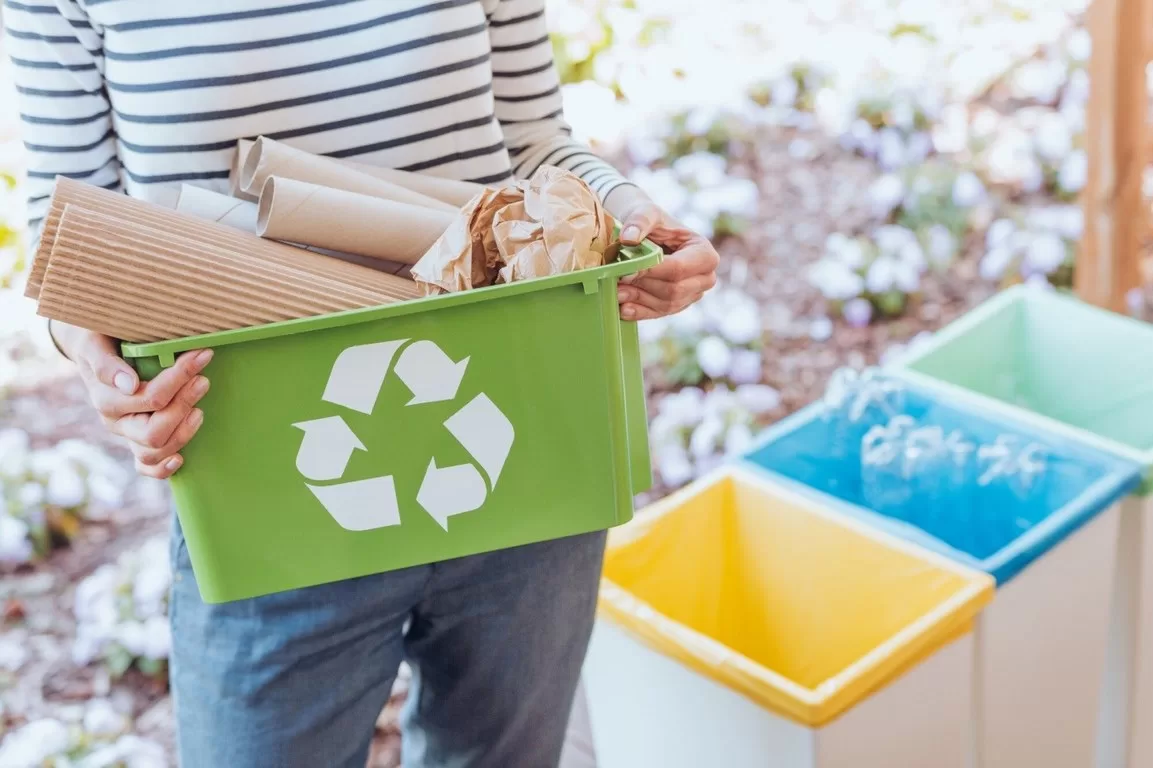Did you know annual plastic water pollution could reach 53 million tons by 2030?
As the world population keeps increasing, the increase in garbage heaps and other forms of pollution is sure to go up. But you can still improve your environmental impact with even the smallest changes.
Starting at home is the best place to begin to help each earthling. If you are wondering how to care for the environment, you must follow some simple tips. Read on for seven tips on caring for the environment and being more sustainable as a homeowner.
1. Reduce Your Carbon Footprint
Reducing your carbon footprint is an essential part of caring for the environment. As a homeowner, you can quickly decrease your carbon footprint by taking daily steps to reduce your environmental impact.
Invest in energy-saving appliances whenever possible to reduce the electricity and gas your household consumes. Eliminate paper towels.
Use washable, cloth kitchen towels and napkins instead of paper to save trees and reduce your emissions. Drive less and use public transportation. You can also ride a bike or carpool. This will take cars off the road and reduce your carbon footprint.
2. Invest in Eco-Friendly Home Products
Investing in eco-friendly homes is an excellent way to care for the environment. Use eco-friendly products designed to reduce energy and water use. This allows for the conservation of resources and prevents the release of harmful chemicals and gases. Look for energy-star and water-star-certified appliances and fixtures.
Choose certified green products like paint, insulation, and carpets free of volatile organic compounds. Choose eco-friendly home cleaning products and recycle used containers. Opt for reusable and washable rags instead of plastic products. Use renewable and clean energy sources like solar and wind.
Look into green financing options that reward homeowners for investing in energy-saving products. Being eco-friendly not only helps you save money but also helps the environment.
Read Also:
3. Capitalize on Natural Resources
Homeowners have the opportunity to capitalize on natural resources available to them. Planting a garden can help reduce water waste and provide access to fresh produce.
Get to know your local native plants and animals. Native plants and animals are adapted to the climate and terrain of their environment and should be protected. Start an organic garden by planting native plants. Not only will you help preserve the environment, but you will also have fresh fruit and vegetables to enjoy.
Avoid irrigating during the hottest part of the day and use water-absorbent plants in landscaping to reduce the need for watering. Encourage local wildlife preservation by joining environmental organizations and staying informed on local issues.
4. Practice Composting
Composting is an effective way for homeowners to care for the environment. Composting helps reduce greenhouse gas emissions.
It prevents organic material from entering the landfill and breaking down to create dangerous methane. Composting provides numerous environmental benefits, but when used in a home garden, it can add fertilizer for a healthier yield.
Gather compostable materials from inside and outside the house. Decide if an open or closed system is best. Select a bin or container. Consider the location composting should occur in a mild climate. Make a layer of green and brown organic matter. Stir the compost to allow oxygen down to the base of the pile. Monitor moisture and temperature levels.
5. Leverage Modern Technology
The way that technology affects our environmental situation is enormous and undeniable. Homeowners can change their homes to reduce energy usage and benefit the environment.
Leveraging modern technology can become a crucial part of caring for the planet. Install bulbs and appliances with a high energy star rating to reduce power consumption. Upgrade to renewable energy sources such as solar panels and wind turbines. Insulate walls and attic for optimum heat savings.
Replace all old windows with double-paned glass for better temperature and energy efficiency. Utilize voice-activated, web-enabled devices to control lights and appliances from a centralized location in the home.
Utilize smart thermostats and sensors to reduce energy waste and control temperatures while away from home. Utilize home energy monitors to track energy consumption and make informed decisions on how to save energy.
6. Implementing Water-Saving Methods
Water is a scarce resource, and its use needs to be managed carefully. Homeowners can take specific steps to save water. Get a water-saving showerhead to reduce the amount of water used to shower.
Ensure that there are no leaky taps or pipeline joints, as this leads to a lot of wastage. Use a rainwater harvesting system to collect and store rainwater for later use. Install smart irrigation systems to boost water efficiency in the garden. Avoid using hoses to wash cars and instead use buckets of water.
Re-use greywater for watering plants, but ensure no toxic substances are used when carrying out household chores. Look for home water distillers, as they allow you to use clean, fresh water without using plastic bottles. It does not use containers that can be harmful and take up a significant amount of space. Finally, opt for drip irrigation systems designed to use water more efficiently.
7. Embracing Organic Gardening
Organic gardening is ideal for homeowners to embrace a commitment to caring for the environment. Organic gardening eliminates the need for toxic chemicals. Educate yourself by reading books and asking experienced gardeners for advice. Start small Get comfortable with the basics before tackling larger projects.
Use mulch to help retain moisture and reduce weed growth. Mix flowers with vegetables Not only will this add color to your garden, but it can also help attract beneficial insects that can help pollinate plants and ward off pests.
Use natural fertilizers such as compost, manure, and rock-based products instead of chemical fertilizers. Consider using rain barrels and drought-tolerant plants to conserve water. Use beneficial insects to keep pests under control. Practicing crop rotation allows people to manage pests and soil fertility better.
Start Caring for the Environment
We can all take ownership of preserving our environment by following these seven tips. Enjoy the extra money saved while reducing our impact on the environment.
We can collectively make a significant impact by making small home changes. Take action today to start caring for the environment! Keep browsing our other popular articles.










